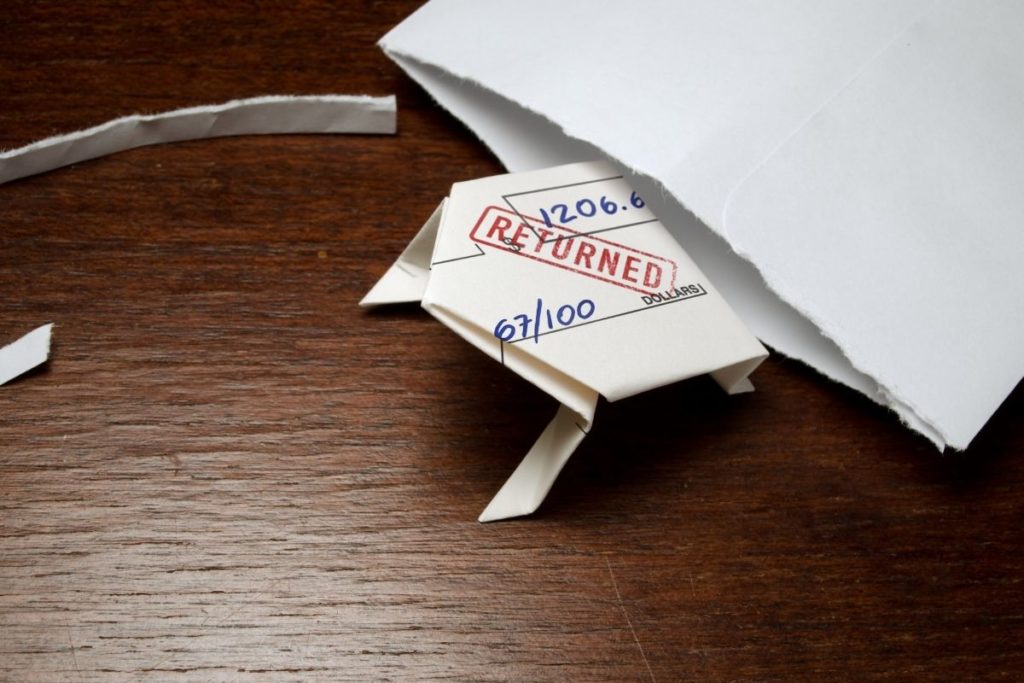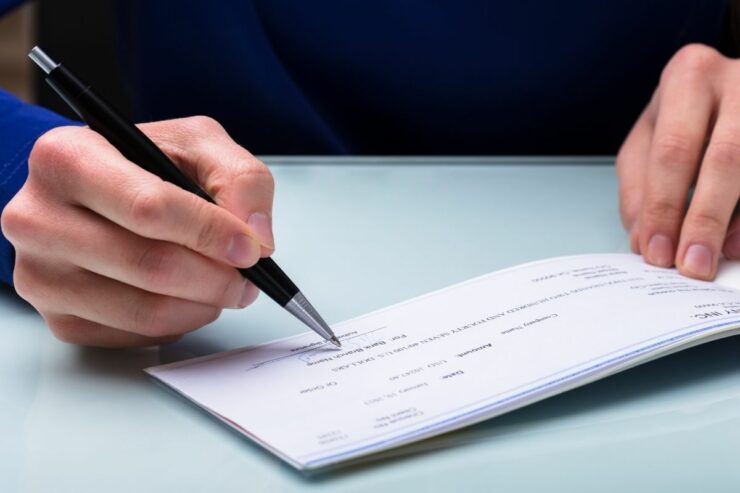A bounced check is used for payments, but the payment process cannot be completed because the check writer has insufficient funds in their account. It’s easy to write a bouncing check, especially if you do not pay attention to details. You may take it as a simple matter, but it may be a severe offense to others. It may create a bad reputation with your financial institution and even affect your credit score. If you make it a habit to bounce checks, your bank may also shut down your current account or ban you from opening any other arrangement with them.
Checks are exchanged and accepted on faith. The payee has no idea how much the person making payments is willing to spend or write. Therefore to build trust, you have to ensure that the checks you write do not bounce. Additionally, if it is determined that the bounced check was written intentionally, you can be sued for an attempt to defraud. If you have written a bounced check before, do not fret. Here are some tips to help you avoid repeating the same mistake.
Keep Your Checking Account Balanced Always
Monitor your account frequently and keep tabs on how much is being withdrawn and deposited. It is common to assume that you have money in the account. Hence, you need to balance your check books frequently if possible, and you can do it weekly. After balancing your checking account, you will be aware of when to spend. Avoid writing checks if you do not have enough money in your account. Noteworthy, ensure your online billings and spending are also accounted for.
Check Your Account Balance Before Writing Any Check
Before committing yourself to write any check ensure your bank account is adequate. Even if you expect some money to be deposited in your account, do not write a check until the deposited amount reflects the actual balance.
Make Use Of Overdraft Protection 
Overdraft protection will help you complete your checking transaction despite having an inadequate account balance. Also, overdraft features can save you from paying hefty interest rates and the embarrassment of writing an invalid check.
Sign Up For An Up-to-the-minute Notification Alert
Signing up for daily notification alerts to notify you of your balance. It is better if the notification alerts you of any withdrawals or deposits made to your account. Therefore you will be on top of your balance. If you have not been keeping tabs with the notifications, ensure you go through them before writing a check.
Line Of Credit
A line of credit is a preset amount of money that your financial institution agrees to lend you; it is a loan that is repaid with interest. It’s essential to have such funds on standby if a check bounces; you can use it to rectify and write another check. The upside of having such funds is that you get them instantly without going through any paperwork process. Thus you can fix the mess swiftly.
Link Accounts
If you have more than one account with your bank, you can decide to link them with your checking account. So that even if you have insufficient funds in the checking account, the bank can complete the transaction by transferring money from your other account to cover the shortfall in the checking account. However, inter-account transfer fees may apply.
Some banks also give their clients an option to link their credit cards to their checking accounts. In this case, if you have insufficient funds, the bank will withdraw some money from your credit card. It is also known as a cash advance from your credit card and has higher interest rates, usually ranging from 20-25%.
Opt For Alternative Payment Methods
There are very many payment methods that you can use to avoid landing in bad books. You may be too busy to keep track of your accounts; thus, making you susceptible to unintended errors such as writing bouncing checks. Consult with the person you are making payments to if they can receive any other form of payment. Some of the payment methods you can use to avoid written checks include;
- Cash
- Debit card
- Mobile wallets such as PayPal.
- Bank transfer
- Prepaid cards
Final Take
You never want to be on the writing end of a bounced check. It may cause some severe troubles, and if you are a business person, you may lose some clients and suppliers. The best prevention of writing bouncing checks is to develop some basic financial practices such as balancing your checking account, reviewing your account balance, sticking to a budget and making use of overdraft protections offered by your financial institution. If you have written a bad check once, it is not that serious, but you should avoid making the same mistake several times since it will cost you much more than you think.








